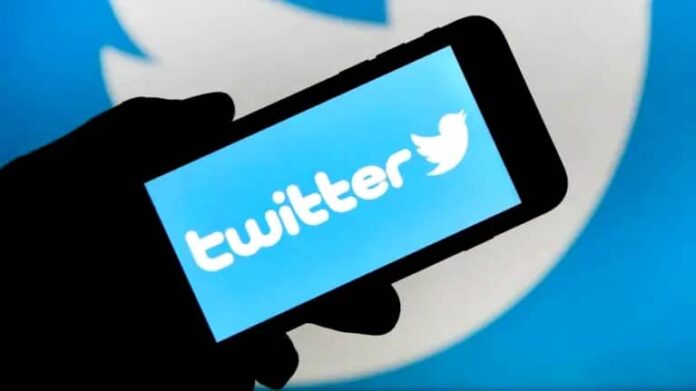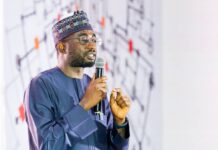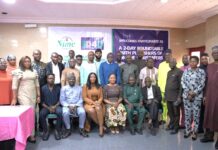Twitter Ban: X-Raying Legal and Socio-polical Issues in Nigeria
By Kaigama Mustapha
TECH DIGEST – Nigeria is the most populous country in Africa, with over 200 million people with a projection to reach 379 million by 2047, as reported by Census Bureau of the United States.
It is also Africa’s leading market for big tech companies with over 122 million internet users as confirmed by the Nigerian Communications Commission ((NCC) and over 40 million active social media users, with a projection to reach 131 million and 46 million respectively, by the end of this year.
In recent years, social media has fostered change in the sociopolitical, economic and legal development of Nigeria and other developed and developing nations.
It has provided a platform for a larger, inexpensive and faster reach in political, economic and social interactions.
This has led to a change of government in some countries, such as the Arab Spring in the Middle East in 2011, which forcefully changed the dictatorial regimes of Libya, Tunisia and Egypt, while also engendering reforms in Morocco, Bahrain and other countries in the Middle East.
In Nigeria, the ruling All Progressives Congress (APC) leveraged on social media to unseat the then incumbent government of Goodluck Ebele Jonathan of the Peoples Democratic Party (PDP).
In the economic milieu, social media has unarguably upstaged mainstream media in serving as a platform for advertising different franchises. Transactions are also initiated and conducted on social media, boosting e-commerce and other offline enterprises.
Amazingly, social media has also become a catalyst of social change. In Nigeria, this played out in instances which caused abrupt reversal in governmental policies and directives.
In 2014, social media platforms such as Facebook, Twitter and YouTube was used as a weapon to champion the #BringBackOurGirls campaign after hundreds of girls were abducted by Boko Haram in Chibok, Northeastern Nigeria.
The campaigners leveraged on social media in pressuring the government to double its efforts in rescuing the girls. Michelle Obama and other celebrities joined in the campaign which added to the sour plate of the then government and eventually became a weapon in the arsenal of the then opposition (All Progressives Congress) and the rest is history.
In 2020, the #ENDSARS and #SECURENORTH campaigns premised on police brutality and extra judicial killings (contrary to sections 33 of the constitution and Article 3 of Universal Declaration of Human Rights, Article 6 of International Covenant on Civil and Political Rights and other laws) as the hydra-headed insecurity that bedevilled northern Nigeria made Youths to campaign earnestly both online and offline in calling for reforms.
The government responded by disbanding SARS and directed States to constitute judicial panel of inquiry as to the human right violations perpetrated by the defunct SARS.
This has raised and rekindled the power of the youth and how they can leverage on social media for a robust sociopolitical participation.
In spite of the positive impacts of social media conversed above, it also have wide range of negative impacts which over the years has become a matter of great concern to governments and the big tech companies as well as their stakeholders.
Read Also:
This can be seen in so many instances; spreading of fake news, misinformation and disinformation, defamation cases, inciting riots and ethno-religious crisis, infringement of intellectual property rights and cybercrimes.
One can see the manifestation of these in June 2018, where over 80 people were gruesomely murdered in Barkin Ladi and different pictures that has nothing to do with the attack was shared on Facebook which angered youths related to the victims as a result of which they attacked those they perceived as the perpetrators.
Also, during the outbreak of Ebola in 2014, messages were shared on WhatsApp that drinking much salt water and bathing with same will protect a person which led to the death of two people and several hospitalizations.
There was also the tale of the president been cloned, these and many more have caused serious threats to our national security and has damaged interpersonal dealings of people from different ethnic backgrounds.
Recently, there has been spate of attacks on police stations and electoral offices in southeastern part of Nigeria which necessitated an address from the President, the controversial tweet made reference to the 1967-1970 Nigerian Civil War and the president relayed his experience of the war and its catastrophic consequences on Nigerians thereby affirming that “those misbehaving today” by which he meant the secessionists in southeastern Nigeria would be treated in “the language they will understand”.
This did not augur well with many Nigerians as they consider the tweet as threat to the southeasterners. Subsequently, twitter deleted the tweet on the basis that the post was in violation of Twitter rules. Nigerian government however responded by banning twitter. The government further calls for the regulation of social media in Nigeria.
This has questioned the democratic status of Nigeria as many consider the action of the government as an attack on the right to freedom of expression. Is the ban really an attack on freedom of expression?
There is no gainsaying the fact that Section 39 guaranteed a person’s right to freedom of expression including the freedom to hold opinion, express beliefs, ideas or thoughts devoid of any interference from the government. This right is also guaranteed under various international instruments such as Article 9 of the African Charter on Human and Peoples Right, Article 19 of Universal Declaration of Human Rights and Article 19 of International Covenant on Civil and Political Rights. However, the right so guaranteed is not absolute as it can be derogated upon.
The framers of the constitution have contemplated this instance which is why section 45 of the constitution provided that where such rights contravenes the interest of defence, public safety, public order, public morality or public health or for the purpose of protecting the rights and freedoms of other persons, the right can be derogated upon.
The negative impact of social media is undoubtedly posing a threat to our public safety as it has led to the death of several people, defamations and untold hardship to others. In instances like ours, it is incontrovertible that any lawful decisive measure taken to ensure compliance with the law is justifiable.
It is my fervent opinion that although banning such platforms might not be the solution to the negative and injurious impacts of social media, but it will force these big tech companies to change their policies in countering, censoring and tackling negative, libelous and injurious contents that affect national security, as well as rights and freedom of other persons as the right to freedom of a person ends where another person’s right starts.
Kaigama Mustapha Esq.
[email protected]



















